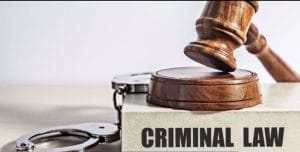by Jason Tarnow | Jan 19, 2024 | Crime, Legal Rights, Media, Police, Wheels Of Justice
How would you feel if your DNA was used to convict a family member?
Last week, news consumers were divided on the use of this tactic to identify and arrest Ibrahim Ali who was recently convicted of the murder and sexual assault of a 13 year old victim in 2017 in Burnaby.
Investigators went undercover at a 2018 Kurdish New Year Celebration handing out samples of tea in hopes of collecting DNA from their suspect – and it worked. Police were able to obtain a sample from a relative of the suspect. The sample was analyzed and compared against the DNA sample collected from semen found inside the victim, and the results were conclusive: the sample collected at the Kurdish New Year Celebration belonged to the brother of the whomever’s DNA was found inside the victim. This critical development resulted in the positive identification of Ibrahim Ali, his subsequent arrest and ultimately, his conviction.

However, certain civil liberties advocates have decried this investigative strategy, claiming it infringes on the privacy rights of people who have their DNA seized when they themselves are not suspected of any wrongdoing. Further, genealogical DNA testing is not frequently accessed or available technology in Canada. As a result, the analysis is often done in the United States, further stoking concerns from privacy experts. Police are required to maintain a “chain of custody” for all exhibits in a case. When the exhibits are forensic material, it is especially important that the chain of custody be meticulously maintained. This becomes increasingly difficult when exhibits leave the custody of Canadian agencies. Further, labs in the United States (and beyond) may not be accredited to the same standard as a Canadian lab. And of course, when private and sensitive material exists in the database of outside agencies, there is always a security risk.
Genealogical DNA testing and its use in criminal law is still very much in its infancy – in Canada, anyways.
This investigational technique gained notoriety in 2018 when it was used to identify and convict the Golden State killer in California, and made headlines again in December 2022 when it was used to identify Bryan Kohberger, currently awaiting trial for the murder of four college students at the University of Idaho.
Canadian Courts and legislators are no doubt paying close attention to developments in the field of Genealogical DNA testing. It is more important now than ever – in the age of ever-advancing scientific exploration and sophisticated tools like AI – that the Courts, and the law, can maintain pace.
by Jason Tarnow | Jul 25, 2022 | Crime, Legal Rights
Being charged with a criminal offence is, without question, one of the most stressful events that can happen to a person. Leaving aside the potential consequences that can arise if one was ever convicted, just having a criminal charge laid against you can bring significant prejudicial effect to one’s life. Depending on what you do for a living, you may have to notify your employer or administrative body that you have been charged. There may be negative publicity which can bring adverse effects to your life. Further, there is undoubtedly a massive amount of stress that comes with being criminally charged.
So how do you choose the best criminal lawyer in Vancouver? There are a lot of lawyers practicing in criminal law who may portray an image that they’re the ‘best’, but are they? There are also lawyers who may simply tell you what you want to hear to get your business by “guaranteeing” you the outcome you want – these are the ones to be most cautious with. No lawyer – and I don’t care how experienced they are or what they claim their success rate is – can or should guarantee you how you matter with end up because the final say rests with the Judge and/or Jury, not the lawyer.

Choosing the right lawyer for your legal matter is an important decision. Not all criminal lawyers have complete knowledge of the Criminal Code. Some specialise in impaired driving, some in sexual assaults, and some in drug investigations. You should speak to a few and make sure the lawyer you are considering to retain has the knowledge and experience to defend and protect your rights best.
One further thing to note is that with the onset of the Covid-19 pandemic, many lawyers have had to familiarise themselves with video conferencing technology such as Zoom and MS Teams, because the Courts now use them. What this means to you, the client, is that you can contact and consult with lawyers virtually and outside of your local geographic area, where there may not be so many lawyers depending where you live.
Our lawyers at Tarnow Criminal Law, while physically based in the Vancouver-area, assist clients all around British Columbia and the Yukon Territory. Call our offices to schedule a consultation by telephone, video, or in person.
by Jason Tarnow | Jul 12, 2022 | Crime, Police
On Monday, July 11, 2022, Jason Tarnow spoke with Kevin Charach of CTV news regarding the theft of nearly $220,000 by an employee of a local Richmond BC business.

Despite the former employee confessing, and entering into a repayment agreement through civil litigation, the RCMP do not appear to be pursuing criminal charges.
by Jason Tarnow | Jun 29, 2022 | Crime, Media, Politics
In May of 2022, the Supreme Court of Canada determined that stacking parole ineligibility for multiple murders is unconstitutional under Canadian law.
In 2011, Stephen Harper’s government passed legislation relating to sentencing provisions in the Criminal Code that would allow Judges to impose parole ineligibility far beyond the minimum of 25 years on the offence of First Degree Murder, pursuant to Section 745.51.
Since that time, several sentences have been passed in imposing parole ineligibility, with the most lengthy sentence being no parole eligibility for 75 years in the case of Douglas Garland, who was found guilty of murdering two adults and their grandson. Garland appealed his sentence to the Alberta Court of Appeal, where it was upheld.
It was the case of the Quebec mosque shooter, Alexandre Bissonnette, that resulted in a unanimous decision from all nine Supreme Court Justices to rule that the sentencing provision violated Section 12 of the Canadian Charter of Rights and Freedoms, granting protection against cruel and unusual punishment. Bissonnette pleaded guilty to 6 counts of First Degree murder and six counts of attempted murder, and the Crown had asked for a parole ineligibility period of 150 years – 25 consecutive years for each of the six people he murdered – which would have been the harshest sentence handed down in Canada since the abolishment of capital punishment. The presiding Judge declined, and instead sentence Bissonnette to 40 years before he could apply for Parole. Criminal defence counsel appealed to the Quebec Court of Appeal in 2020, and the sentence was reduced to 25 years. The Crown then appealed to the Supreme Court of Canada, which led to the landmark decision to cap parole ineligibility at 25 years.

With this decision, those incarcerated under the stacked ineligibility provision are seeking to have their sentences reduced, which has caused a great deal of alarm to the public. It is important to remember that someone convicted of first degree murder will have eligibility at Parole after 25 years – but that does not guarantee their release by any means. The Parole Board looks at many factors when determining whether or not to grant Parole, including the actual offence itself, criminal and social history, rehabilitation efforts, and remorse. Their review of an individuals history when considering release is thorough and rigid. Victim impact statements from family members and loved ones are also taken into consideration.
The decision from the SCC included the following passage:
“This appeal is not about the value of each human life, but rather about the limits of the state’s power to punish offenders.”
This is a reminder that the Court’s decision to limit parole ineligibility is not meant to diminish loss of life, or to favour offenders. It reaffirms that our government, including judicial institutions, must abide by limits to ensure that Canada remains a fair and just society for all.
If you have been charged with a criminal offence in British Columbia (including, but not limited to: Richmond, Vancouver, Surrey, Delta, Langley, Coquitlam, New Westminster, Abbotsford, Victoria, Nanaimo, Kamloops, Kelowna) or the Yukon Territory (including but not limited to: Whitehorse, Dawson City, Watson Lake, Haines Junction, Mayo, Old Crow) contact experienced counsel at Tarnow Criminal Law without delay.

by Jason Tarnow | Apr 1, 2022 | Crime, Criminal Attorney
Systemic racism is alive and well in the Canadian judicial system. A refreshed approach to sentencing is long over due.

Bill C-5 seeks to do just that – by repealing Mandatory Minimum Penalties (“MMP”) for 14 offences in the Criminal Code, and all six MMP’s in the Controlled Drug and Substances Act. Statistics demonstrate that MMP’s disproportionately effect Canadians of color – specifically, Indigenous and Black Canadians.
Two important factors to consider:
Overincarceration rates
Data on this issue was collected by the Government of Canada for the periods of 2007-2008 and 2016-2017. The information compiled desmonsrates that Indigenous and Black offenders were most likely to be admitted to the Federal correctional system for an offence attached to a mandatory minimum sentence.
Judicial discretion in sentencing
Mandatory minimum penalties eliminate a Judge’s ability to sentence an offender while considering their unique circumstances. In cases where a mandatory minimum punishment is the best an Accused can hope for, there is little reason for the Accused to make any meaningful effort to mitigate the damage. When a custodial sentence is imminent, the feeling of having “nothing left to lose” can take over. Any incentive for an Accused to plead guilty to an offence carrying an MMP, when their efforts for rehabilitation have no influence on the Judge’s ability to impose a just and fair sentence.

Reforms to the MMP provisions of the Criminal Code and CDSA are specific to the following offences:
Criminal Code:
1. Using a firearm or imitation firearm in commission of offence (two separate offences)
2. Possession of firearm or weapon knowing its possession is unauthorized (two separate offences)
3. Possession of prohibited or restricted firearm with ammunition
4. Possession of weapon obtained by commission of offence
5. Weapons trafficking (excluding firearms and ammunition)
6. Possession for purpose of weapons trafficking (excluding firearms and ammunition)
7. Importing or exporting knowing it is unauthorized
8. Discharging firearm with intent
9. Discharging firearm — recklessness
10. Robbery with a firearm
11. Extortion with a firearm
12. Selling, etc., of tobacco products and raw leaf tobacco
Controlled Drugs and Substances Act:
1. Trafficking or possession for the purpose of trafficking (two separate offences)
2. Importing and exporting or possession for the purpose of exporting (two separate offences)
3. Production of substance Schedule I or II (two offence)
Mandatory Minimum Punishments will remain in effect within the Criminal Code for other offences to which MMP’s apply.
It is important to note that the Judge can still impose a period of incarceration for any of the offences mentioned above – they simply will no longer be bound by legislation to impose a specific period of jail.
As we’ve seen with other aspects of Canadian criminal law, a “one size fits all” approach is rarely just. Sadly, these legislative amendments will do nothing to address the current rate of overincarceration of Indigenous and Black Canadians. For them, it is too little, too late.
If you have been charged with a criminal offence, it is important that you speak to experienced defence counsel without delay. Our office skillfully handles both summary and indictable offences, ranging from assault, mischief, criminal harassment and impaired driving, to sexual assault, murder, robbery, unlawful confinement, and everything in between. We are licensed to practice in British Columbia, and work in the Lower Mainland and Greater Vancouver Area including, but not limited to Richmond, Vancouver, Surrey, Ladner, Burnaby, Port Coquitlam, New Westminster and Langley, and in the Fraser Valley, including, but not limited to Abbotsford , Chilliwack, Hope, Mission and Agassiz. We are also licensed to practice in the Yukon Territory and frequently accept clients in Whitehorse, Dawson City, Old Crow, Mayo, Haines Junction, and Faro.






